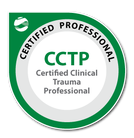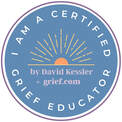|
One of the biggest blocks to flow is difficulty in coming to terms and acceptance of our past. We have all done things we are not proud of. We all have moments when we realize we lost our temper and lashed out in anger, or did things that were hurtful to someone else. While other people are often quick to point out that we screwed up, the fact is most times we know and our internal voice is already giving ourselves a severe tongue lashing. That voice in our head is our most outspoken critic. It will remind us at every chance it gets that we really don’t know as much as we think we do or that we really are the worthless person someone had told us we were. It is often hard to move beyond that critical voice, but that is exactly what keeps us stuck. Take a moment to truly think about how compassionate you are to yourself. Let’s say you accidentally knock a cup of coffee over and it spills on some important papers on your desk at work, what does your internal voice sound like? Is it screaming and yelling at you or is it telling you that it is okay and you will be able to fix it? Put it on a scale of 0- extremely critical to 10- completely compassionate. Now take a moment and imagine that someone you admire at work (or a good friend, significant other or child) just spilled something. While the initial response may be anger, when you see their reaction and they begin to apologize chances are you begin to show them compassion. You let them know that it was an accident and that they didn’t intend to do it. It is often much easier for us to show compassion to someone else than it is to show compassion to ourselves. One of the exercises that I go through with clients is to ask them to imagine themselves lying in bed crying or upset with themselves. I ask them to visualize themselves walking up behind this image of themselves lying in bed and ask them to comfort themselves, just like they would comfort a child. I have found that it is extremely difficult for some of the clients to do this. There is so much self-hatred built up that to even begin imagining any self-compassion brings up a great deal of emotion. I have encouraged the clients to begin with brief visualizations of this self-compassion exercise daily, trying to stay with it for several seconds only at first, but asking them to gradually build up to staying with it for a full minute and up to five minutes daily. There is a space between the life we are currently living and the life of our dreams. Within that space there is a lot of muck and difficult things to go through. For many people is it easier to stay bound by our circumstances then it is to go through the muck in order to get to the life of our dreams. Beginning with self-compassion gives us the strength to get through the muck. It is one of the most important keys to getting unstuck.
0 Comments
Leave a Reply. |
Archives
April 2020
Categories
All
|
 RSS Feed
RSS Feed




